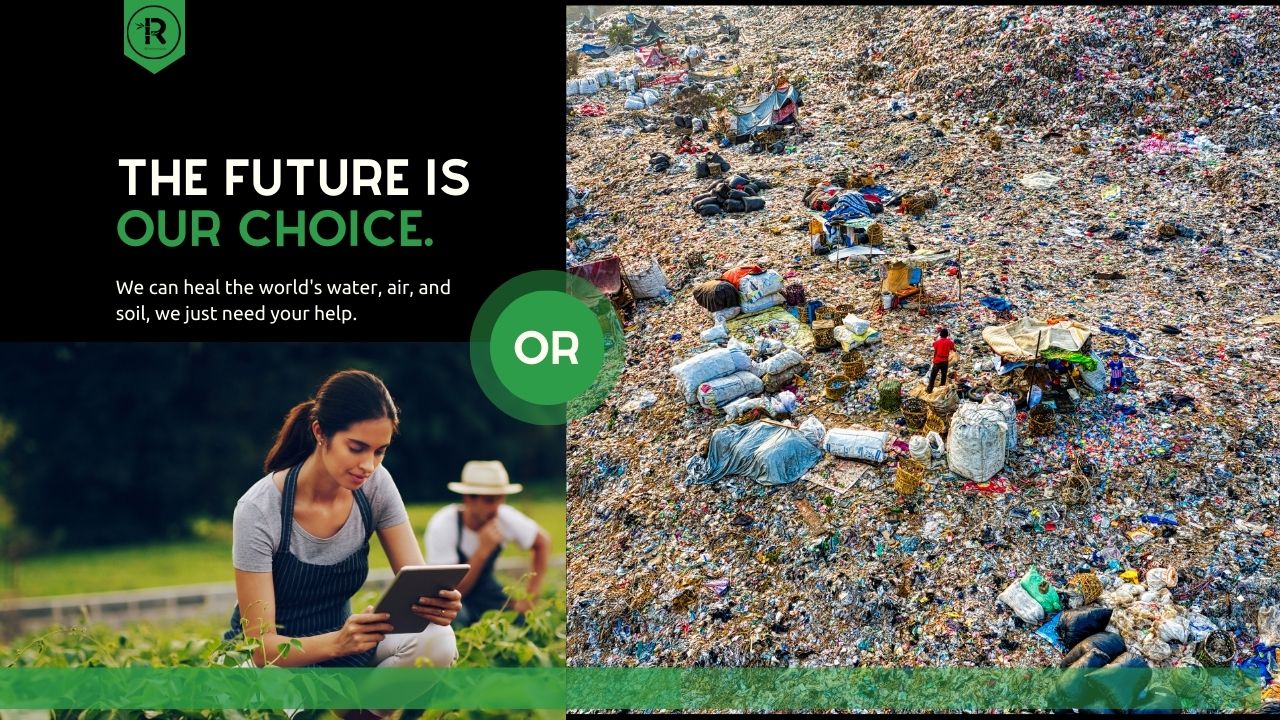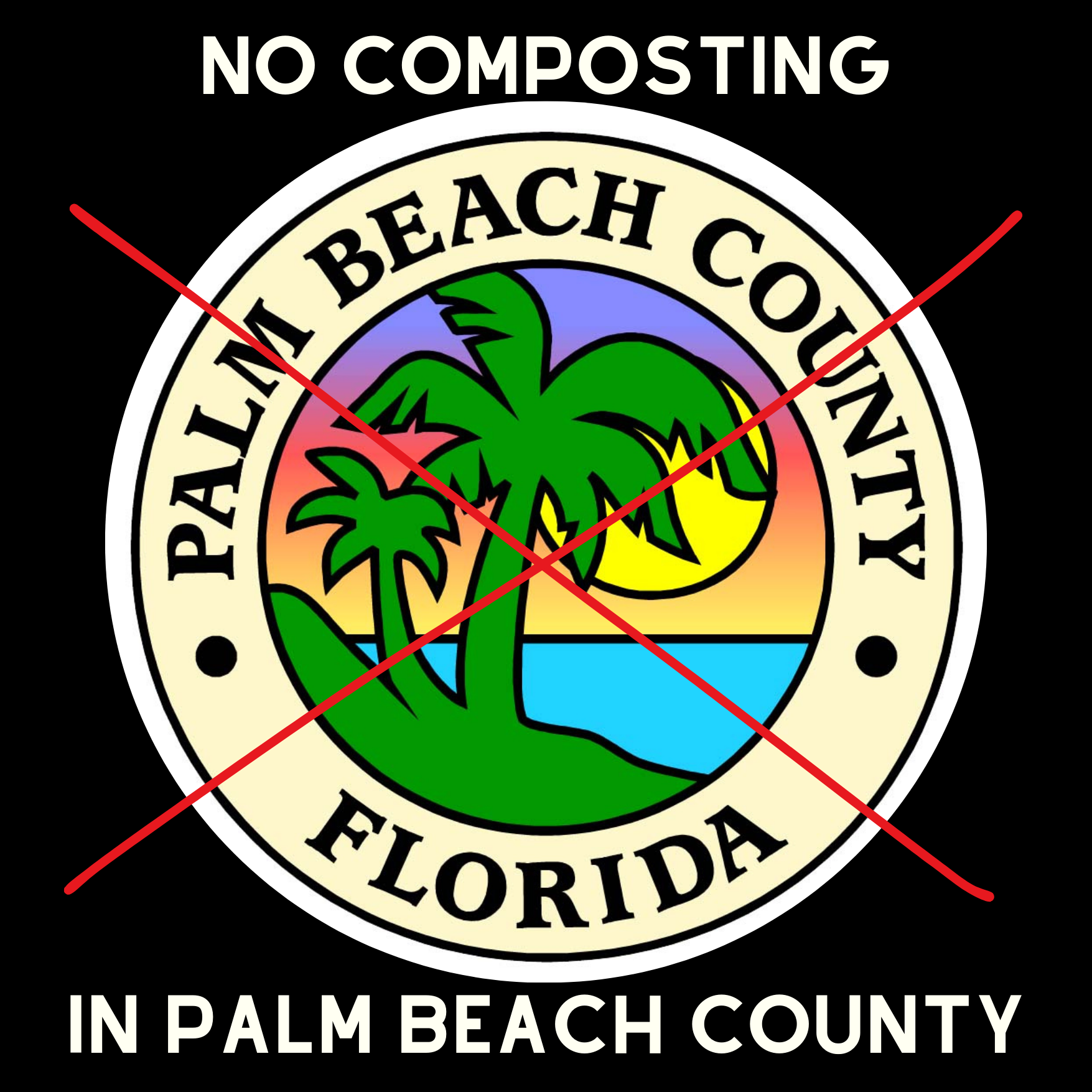Landfilling Organics. WHAT ARE WE DOING?!
Renuable
July 28th, 2023

Landfilling Organics: What Are We Doing?!
In the modern world of big cities and typical waste management infrastructure, we face a pressing environmental challenge – the mismanagement of organic waste. Despite the growing awareness of sustainable waste practices, the vast majority of organic waste, including food scraps, yard trimmings, and other biodegradable materials, still ends up in landfills. In Florida, nearly 100% of food scraps and about 50% of the yard waste organics are sent to landfill, resulting in millions of pounds of greenhouse gases being released.
The Environmental Impact
When organic waste is sent to landfills, it undergoes anaerobic decomposition – a name for the process of decomposition that occurs in the absence of oxygen. This anaerobic breakdown produces methane, a potent greenhouse gas known for its detrimental impact on climate change. Methane has a much higher global warming potential compared to carbon dioxid. By some estimates methane is 80 times more effective at warming the planet than carbon dioxide, making it a significant contributor to the ongoing climate crisis. If food waste were a country, it would be the third largest contributor to GHG emissions behind the United States and China.
The release of methane into the atmosphere exacerbates global warming, leading to more frequent and intense weather events, rising sea levels, and disruptions to ecosystems. As air and ocean temperatures are reaching all time highs, we can see a vicious cycle that demands immediate attention and action.
Wasted Resources
Landfilling organics is a double-edged sword. On one hand, it contributes to greenhouse gas emissions, and on the other hand, it squanders valuable resources. Organic waste contains vital nutrients and organic matter that could be recycled and utilized to benefit the environment and agriculture.
Composting offers a sustainable solution to this problem. By composting organic waste, we can create nutrient-rich soil amendments that enhance soil health, promote plant growth, close the nutrient loop and help enable a healthier local food system for any community. Embracing composting and other eco-friendly waste management practices can significantly reduce our reliance on landfills, while preserving their space and usable lifespan for the valuable resource that they provide, because as much as we want to see a fully zero-waste future, we have a very trashy current reality.
The Financial Burden
Landfilling organics isn't just an environmental concern; it also comes with a hefty financial burden. Managing landfills requires ongoing maintenance, transportation costs, and long-term management of waste sites that eventually fill up and become unusable. These expenses can strain municipal budgets and divert funds from more sustainable waste management initiatives. Composting on the other hand, creates a valuable resource at the end of the process, so the same compost facility can operate without running out of space, because their end product is healthy and can be used by farmers, municipalites, gardeners, and landscapers to grow more healthy plants and lawns.
Adopting composting and other organic waste diversion methods, however, can prove cost-effective in the long run for residents, businesses, and municipalites. By reducing the landfilling of organics, municipalities can save on operational costs, while investing in more sustainable solutions that benefit both the environment and the community.
As we stare at the reality of landfilling organics, it becomes clear that we are at a critical juncture in waste management. The consequences of this practice – from greenhouse gas emissions to wasted resources and financial burdens – demand immediate action and responsible decision-making.
The solution lies in embracing sustainable waste management practices, with composting as a key component of the answer. By diverting organic waste from landfills and turning it into valuable compost, we can tackle environmental challenges, reduce greenhouse gas emissions, and build a more sustainable future.
It's time for individuals, communities, and governments to come together and rethink our approach to waste. Let's shift our focus towards composting organics, and other eco-friendly methods, taking a stand for a healthier planet and a brighter future for generations to come.
So, the next time you see organic waste headed to the landfill, pause and ask yourself, "What are we doing?" And let the answer be a resounding call for change – change towards sustainable waste management, environmental stewardship, and a more sustainable world.


